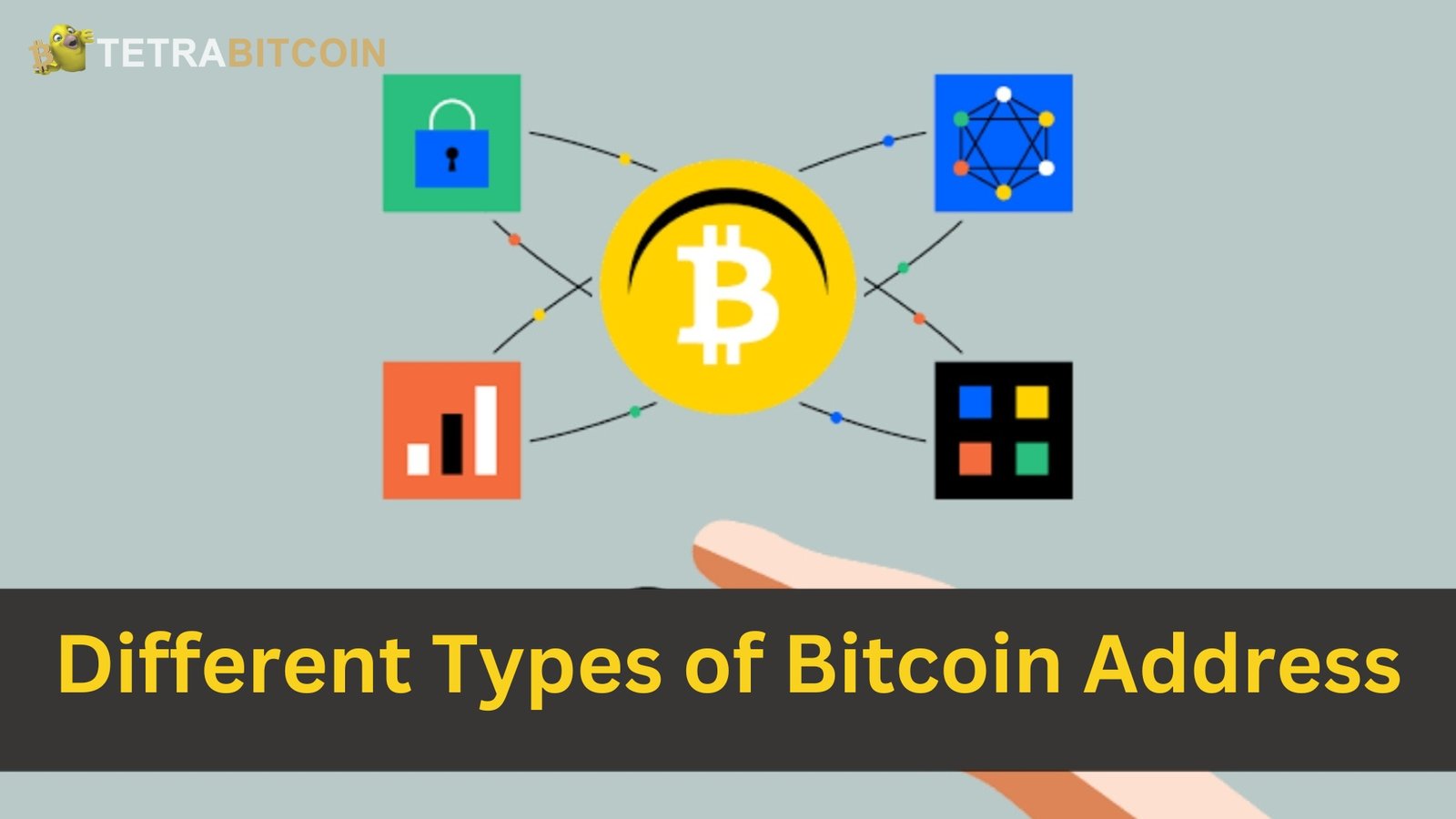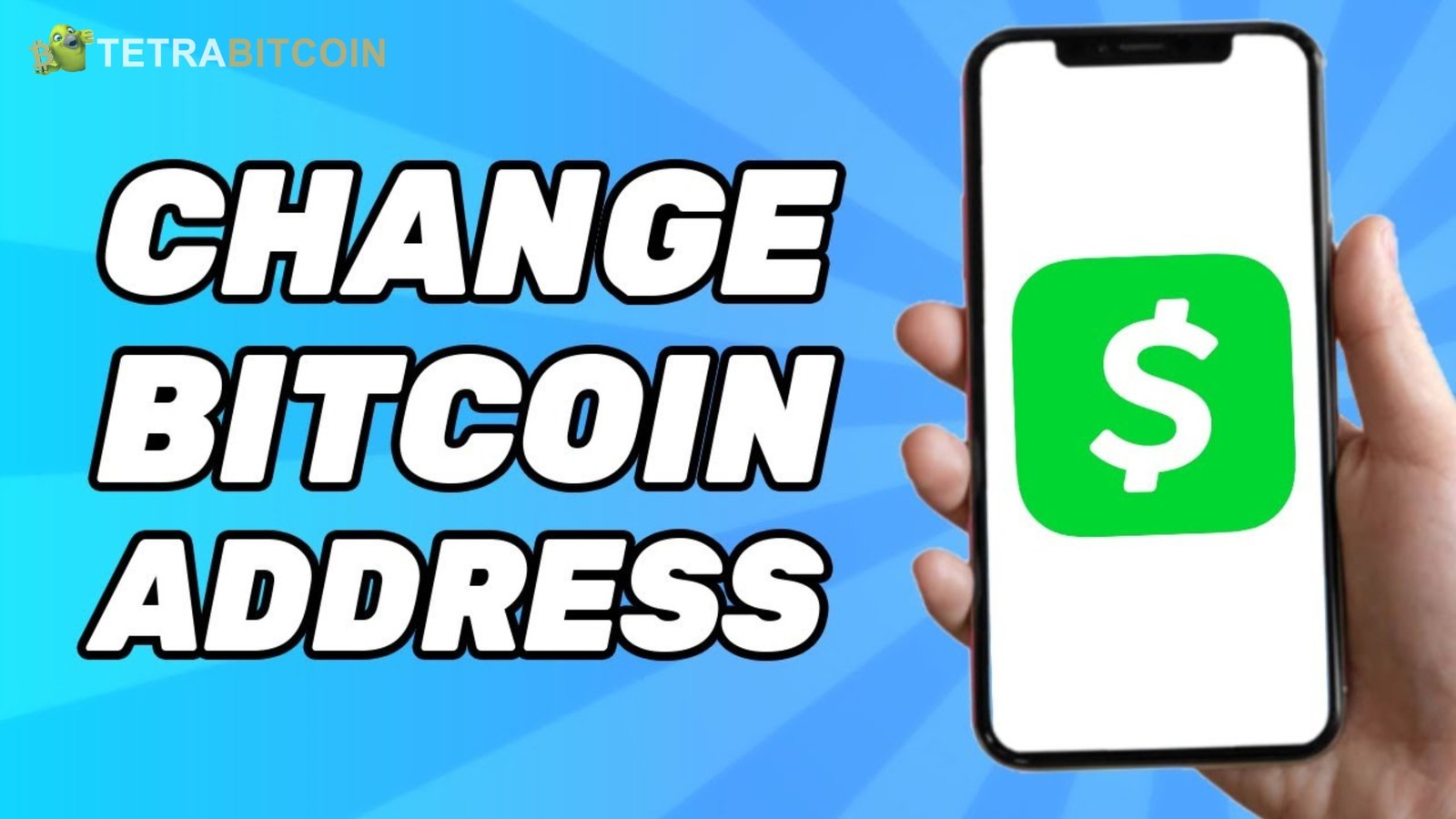Types of Bitcoin Addresses. Bitcoin addresses, composed of alphabetic and numeric characters, are essential for conducting transactions. Understanding their constituent parts is necessary to ensure the transfers’ safety and precision. Tetrabitcoin’s article explains the various address formats that Bitcoin addresses can take and how to interpret them.
What is a Bitcoin Address?
The address of a Bitcoin transaction is a string of letters and numbers unique to the recipient. It is important to note that these addresses are case-sensitive and typically begin with “1,” “3,” or “bc1.” They serve as the recipient’s one-of-a-kind identity, making it possible to transmit and receive Bitcoin BTC $61,511 securely over the decentralized network.
A Bitcoin address is a foundation comprised of public and private key pairs. The public key is shortened and made more manageable to facilitate sharing. The recipient’s address is necessary to establish ownership of the funds received, and the blockchain is used to record transactions.
Although these addresses are required to validate and confirm transactions within the Bitcoin network, they also provide users with anonymity by masking personal information such as names and localities.
How are Bitcoin Addresses Derived?
Bitcoin addresses are generated by encoding and hashing public keys. A Bitcoin transaction cannot be completed without public keys generated from private keys. These keys allow for the generation of digital signatures, which are required to confirm ownership of the funds and enable blockchain transactions.
An essential part of Bitcoin’s operation is using hash functions to create shorter, fixed-length versions of data, such as public keys. By standardizing and compressing Bitcoin addresses, these hash algorithms improve the efficiency of data storage and transit on the blockchain network.
Different Types of Bitcoin Address
The requirement to support new features while maintaining compatibility with older systems necessitated the development of multiple Bitcoin address formats. Testnet Pay-to-Witness-Public-Key-Hash (P2WPKH) is the standard format for Bitcoin testnet addresses beginning with “2” in Segregated Witness (SegWit). Using these addresses, developers can experiment with new features and apps on the Bitcoin testnet network without putting real Bitcoin at risk.
One common way to facilitate Bitcoin transactions using mobile devices is to display the address as a QR code. Below, we’ll go over the Types of Bitcoin Addresses that users can use to communicate:
Legacy (P2PKH)
The original Base58 encoded format, which is still extensively used today, omits easily misunderstood characters. The Pay-to-Public-Key-Hash (P2PKH) script type is case-sensitive; addresses that begin with “1” are examples. A recipient’s “Pay-to” capability to access the cash, their “Public-Key” cryptographic key, and a cryptographic hash of that key are the three main components of a P2PKH transaction.
These provide a simple method of sending and receiving Bitcoin. They are created using the recipient’s public key hash and are widely compatible with most wallets and exchanges, which allow legacy addresses.
SegWit (P2SH)
Implementing SegWit resolved the scalability issues with the Bitcoin network. Similar to historical addresses, those that begin with “3” employ Base58 encoding, are case-sensitive, and are based on the Pay-to-Script-Hash (P2SH) script type.
Secure transactions to addresses derived from these hashes are made possible by the cryptographic hash of the script, which is defined as the “Pay-to” in P2SH, the “Script” as a complex set of instructions outlining the conditions for spending the funds, and the “Hash” as the recipient’s ability to access the funds.
SegWit addresses, which separate signature data from transaction data, offer only two advantages: higher transaction throughput and lower fees. Because of this architecture, Bitcoin can incorporate cutting-edge features like the Lightning Network, which improves the network’s overall performance.
Bech32 (Native SegWit)
It is the native SegWit protocol that is the foundation for addresses that begin with “bc1,” often known as Bech32 addresses. Their transaction costs are the lowest in the industry, and they make the most efficient use of block space. Compared to earlier forms, Bech32 addresses require lowercase letters, offer enhanced error detection, and are easier for humans to comprehend. New services and applications looking to take advantage of the full possibilities of the Bitcoin network and encourage the adoption of SegWit technology are the best equipped to incorporate them.
Taproot address (P2TR)
The most recent and cutting-edge format in Bitcoin is known as Taproot (P2TR) addresses. These addresses are also referred to as Taproot or Bech32m. In addition to being case-insensitive, these addresses start with the letter bc1p. They are opt-in and not yet commonly supported, similar to SegWit, but they improve scalability, flexibility, privacy, and security. However, they are not yet widely supported. Schnorr signatures, which reduce costs, boost security, and make it possible to develop smart contracts, are some of the perks that Taproot provides, along with other advantages.
Breaking Down the Bitcoin Address
Let’s use a fictitious Bitcoin address, such as 1A1zP1eP5QGefi2DMPTfTL5SLmv7DivfNa, to gain an understanding of the many components that comprise a Bitcoin address.
- Length: The average length of a Bitcoin address is between 26 and 35 characters.
- Alphanumeric characters: They consist of numbers and letters, both capital and lowercase; to prevent confusion, they do not include the number “0” nor the letters “O,” “I,” and “l.”
- Version prefix: In the P2PKH format, standard Bitcoin addresses begin with “1” as the version prefix.
- Checksum: To ensure correctness and identify typing errors, Bitcoin addresses have a checksum.
- Base58 encoding: Base58 encrypts addresses by removing any potentially confusing characters.
- Public key hash: The hash of the recipient’s public key forms the basis of a Bitcoin address. Within the Bitcoin network, this hash gives the recipient a unique identity.
What is a Change Address in Bitcoin?
A change address is an additional output address in a Bitcoin transaction that gets any leftover funds from the inputs. When a transaction is created, if the total value of the inputs exceeds the amount being transferred, the extra amount called the change, is sent back to one of the sender’s addresses.
This method preserves the complete value of the inputs and does not waste them. To aid in preserving secrecy and anonymity, change addresses obfuscate which output is the change and which is the payment. Bob wants to transfer half a bitcoin to Alice but only has one in his wallet. To ensure Alice receives the specified amount, Bob starts a transaction. Bob uses a change address from his wallet to ensure Alice receives half of the Bitcoin.
Types of Bitcoin Addresses: Because of this change, his initial unspent transaction output (UTXO) is no longer wasted. To avoid duplicate spending and guarantee ownership, UTXO represents Bitcoin that has not yet been spent but is used as input for subsequent transactions.
Upon confirmation of the transaction, Alice will receive 0.5 BTC, and Bob’s wallet will have two UTXOs: one for the amount sent to Alice and another for the amount changed. This way, Bob can be guaranteed that his Bitcoin will not be lost in the transaction and that he maintains control over his cash.
Significance of Validating Bitcoin Addresses
Before sending Bitcoin to an address or completing a transaction, please verify the address is genuine and formatted correctly by validating it. This precaution is critical to forestall financial losses due to fraud or typos.
Whether transferring funds between legacy, SegWit, or Bech32 addresses, checking that your wallet or service is compatible with Bitcoin addresses is crucial. Not confirming address formats can lead to transaction errors or financial loss, so it’s important to do it to ensure smooth transactions across different platforms.
Thankfully, Bitcoin wallets often provide address validation protocols. These features help users feel more secure and at ease by verifying the address before purchasing. Users can safeguard their cryptocurrency assets by reducing the likelihood of sending Bitcoin to incorrect or invalid addresses through address validation tools.

